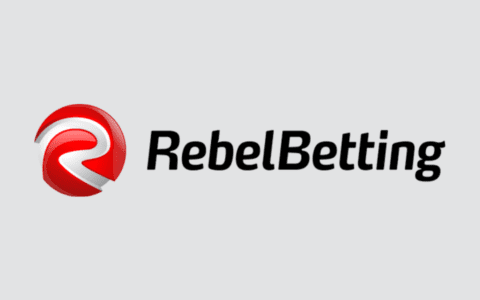
How to Begin Professional Sports Betting
Learn the initial steps to take when starting a career in sports betting, including analysis techniques and bankroll strategies.
- Understanding odds
- Bankroll basics
- Finding value
- Risk management
Professional gambling requires more than luck. It's a career choice demanding strategic thinking, emotional discipline, and expert skill sets.
A professional gambler is someone whose primary or sole source of income derives from gambling activities, distinguished fundamentally by the fact that they treat gambling as a business rather than entertainment. This distinction separates them from recreational gamblers, who participate primarily for enjoyment and are not dependent on gambling for their livelihood.
A professional gambler is someone whose main or only source of income is gambling. This fundamental distinction separates professional gamblers from recreational players who view gambling primarily as entertainment. The professional gambling sector represents a niche but growing segment of the gambling industry, where individuals have transformed their understanding of odds, probability, and game strategy into a viable career path. The growing interest in professional gambling as a career choice reflects both the accessibility of betting platforms and the increasing recognition that gambling, like any competitive field, rewards skill, discipline, and strategic thinking.
Professional gamblers possess distinctive characteristics that fundamentally differentiate them from casual or recreational players. The most critical distinction lies in their approach and mindset: professional gamblers treat gambling as a serious business or career, focusing on consistent long-term profitability rather than entertainment. They approach each game with a predetermined strategy, fully aware of the risks and rewards involved.
A core characteristic is their patience and discipline. Professional gamblers possess the self-control to resist impulsive decisions, using discipline as the foundation for all decision-making. They understand the importance of sticking to well-defined plans, whether involving efficient bankroll management, following specific strategies, or maintaining consistent practice schedules. This disciplined approach minimizes emotional decision-making, allowing them to make rational choices based on calculated probabilities.
Professional gamblers must master several critical skills to achieve sustained success:
Analytical Skills and Strategic Thinking
Professional gamblers must possess strong analytical abilities and the capacity for strategic thinking. This involves far more than understanding game rules; it requires the ability to analyze complex data, spot trends, and make informed decisions based on probabilities and risk assessments. In sports betting, for example, professional gamblers evaluate vast amounts of statistical data including player performance, team dynamics, and historical trends to identify value bets. In poker, strategic thinking is essential for understanding opponent behaviors and making decisions that maximize long-term gains.
Problem-Solving and Decision-Making
Professional gamblers use their decision-making skills and problem-solving strategies to consistently win. They invest time, money, and effort to improve their skills and develop winning strategies, approaching problem-solving as a core competency rather than an occasional necessity.
Professional gamblers approach their craft like a business, focusing on systematic methodology and strategic planning.
This career demands constant learning, analytical prowess, and emotional resilience to maintain consistent results.

Bankroll Management
Effective bankroll management distinguishes professional gamblers from recreational players. Professionals develop systematic approaches to managing their capital, ensuring they never over-extend themselves and maintaining sufficient reserves to weather losing streaks. This involves calculating appropriate bet sizes based on their bankroll and risk tolerance.
Frustration Tolerance
Professional gamblers have developed a high level of frustration tolerance, understanding that anger and impulsivity would ruin their performance. This psychological resilience allows them to maintain composure during inevitable losing streaks and setbacks.
Several myths surround professional gambling that warrant clarification:
Misconception: Professional gamblers always win.
Reality: Professional gamblers experience losses regularly. Their success is measured by long-term return on investment (ROI), not by avoiding losses entirely. Variance ensures not every bet will win, regardless of how smart the betting strategy is. Successful professional gamblers trust their proven long-term approaches and ride out rough patches rather than abandoning strategies during temporary downturns.
Misconception: Professional gamblers are addicted to gambling.
Reality: Professional gamblers do not have a gambling problem or addiction in the clinical sense. They maintain rational thinking and self-control. Their gambling only becomes problematic if they experience reduced rational thinking and self-control, which causes them to experience more losses and financial difficulties.
Sports betting represents one of the most popular professional gambling pursuits. Professional sports bettors evaluate extensive statistical data including player performance metrics, team dynamics, injury reports, historical trends, and matchup analysis to identify value opportunities where odds underestimate likely outcomes. Success in professional sports betting requires understanding betting markets, line movements, and the mathematical principles underlying probability assessment. Professional sports bettors often specialize in specific sports, leagues, or bet types to develop expertise and gain competitive advantages.
Poker stands as one of the traditional domains of professional gambling. Professional poker players rely heavily on psychological insight, understanding opponent behavior patterns, position strategy, and advanced mathematical concepts such as pot odds and expected value. The skill-based nature of poker makes it particularly attractive to professional gamblers, as outcomes depend significantly on player decisions rather than pure chance. Professional poker players often develop specialized expertise in specific game variants (Texas Hold'em, Omaha, etc.) and play formats (cash games, tournaments).
Professional gamblers face significant income volatility, as gambling results fluctuate considerably over short periods. While mathematical advantages may exist over the long term, short-term variance can create substantial financial pressure. A professional gambler might experience winning months followed by months of losses, creating cash flow challenges for personal expenses and financial obligations. Bankroll Depletion The most catastrophic financial risk involves depleting one's bankroll entirely. Despite skilled analysis and strategy, sustained losing streaks can exhaust capital reserves, effectively ending a gambling career. Professional gamblers must maintain sufficient bankroll reserves to weather extended downturns without financial ruin. Lack of Traditional Employment Benefits Professional gamblers lack the employment benefits of traditional careers, including health insurance, retirement plans, unemployment insurance, and paid leave. They must independently fund these protections or forgo them entirely.
Stress and Pressure The inherent uncertainty in gambling, despite skill and analysis, creates persistent psychological stress. Decisions with significant financial consequences combined with variable outcomes can lead to chronic stress and anxiety.
Risk of Addiction Although professional gamblers maintain better control than problem gamblers, the risk of addiction exists, particularly during losing streaks when the temptation to "chase losses" or increase stakes can emerge. The boundary between professional gambling and problematic gambling can blur when rational thinking and self-control diminish.
Isolation and Social Stigma Professional gamblers often face social stigma despite their skilled approach. The general perception of gambling as morally questionable or frivolous can create social isolation and difficulty in explaining their profession to others.
Mental Fatigue The constant requirement for analytical focus, emotional control, and strategic decision-making can lead to mental exhaustion, potentially compromising judgment and increasing error likelihood.
Professional gamblers face distinct tax treatment compared to recreational gamblers. Professional gamblers are treated differently from amateur gamblers for tax purposes because they are viewed as engaged in the trade or business of gambling. The IRS applies specific standards to determine professional gambler status based on the "facts and circumstances."
The Professional Gambler Standard The Supreme Court established the professional gambler standard in Groetzinger, defining it as follows: "If one's gambling activity is pursued full time, in good faith, and with regularity, to the production of income for a livelihood, and is not a mere hobby, it is a trade or business." The burden is on the gambler to prove this status. Factors considered in determining professional status include: - The manner in which the taxpayer carries on the activity - The expertise of the taxpayer or their advisers - The time and effort the taxpayer expended in carrying on the activity - An expectation that assets used in the activity may appreciate in value - The taxpayer's success in carrying on other similar or dissimilar activities Tax Reporting Requirements Professional gamblers report gambling winnings and losses for federal purposes on Schedule C, Profit or Loss From Business. This treatment differs from recreational gamblers, who report gambling income and losses on Form 1040 with specific limitations. To compute business income, professional gamblers may net all wagering activity but cannot report an overall wagering loss. Deductible Expenses Professional gamblers may deduct "ordinary and necessary" business expenses incurred in connection with their gambling business, excluding wagers themselves. These can include computer equipment, software, data services, travel expenses related to gambling, educational materials, professional fees, and office space. Record-Keeping Requirements Professional gamblers must maintain meticulous records of all wagering activity, including dates, amounts wagered, outcomes, and associated expenses. This documentation supports their professional status claim and ensures accurate tax reporting.
Regulatory Compliance Professional gamblers must understand and comply with gambling regulations specific to their jurisdiction and the platforms they use. Different states and countries maintain varying requirements regarding online gambling, sports betting, and other professional gambling activities. Source of Income Documentation Professional gamblers may face challenges documenting their income source for banking, lending, and other financial purposes. Many financial institutions view gambling income skeptically, complicating mortgage applications, business loans, and other financial arrangements. Anti-Money Laundering Requirements Gambling establishments must report large transactions (typically over $10,000) to financial authorities under anti-money laundering regulations. Professional gamblers should understand these reporting requirements and maintain compliance.
A professional gambler is fundamentally someone whose primary income derives from gambling through skill-based strategy rather than chance. This career path demands far more than luck—it requires analytical sophistication, emotional discipline, strategic thinking, and unwavering commitment to long-term profitability over short-term excitement. Professional gamblers distinguish themselves through patience, analytical awareness, emotional control, and rigorous bankroll management, setting them apart from recreational players motivated by entertainment.
The professional gambling career encompasses significant challenges alongside opportunities. Financial volatility, psychological pressures, social stigma, and complex legal and tax considerations create a demanding professional landscape. However, those who master the requisite skills and maintain the necessary discipline can achieve sustainable income through professional gambling. Success requires treating gambling as a serious business or career, approaching each decision with strategic methodology, and accepting that long-term profitability rather than individual win-loss outcomes defines professional success.
The complexities involved in pursuing professional gambling as a career—from developing advanced analytical capabilities to navigating tax regulations and managing psychological demands—illustrate why relatively few individuals successfully transition from recreational gambling to sustainable professional careers. Those who do succeed share common characteristics: unwavering discipline, sophisticated analytical capabilities, emotional resilience, and a business-minded approach to their gambling activities.
We are grateful for the support of our sponsors who share our commitment to excellence and strategic thinking in professional gambling.




Learn the initial steps to take when starting a career in sports betting, including analysis techniques and bankroll strategies.

Explore essential skills and tactics for mastering professional poker, from math skills to psychological strategies.
Recent changes in tax regulations impact how professional gamblers report their income, emphasizing the importance of documentation.
The largest poker tournaments of the year are scheduled, attracting professionals from around the world to compete for massive prizes.
As gambling becomes mainstream, the risks of addiction are highlighted, prompting calls for better support systems for gamblers.